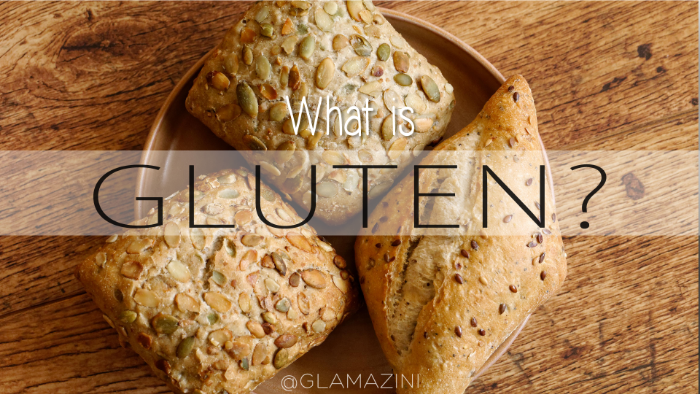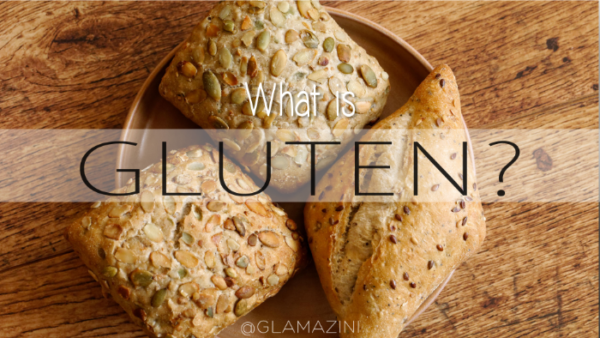
What is Gluten?

I‘ve been doing a “What Does _______ Mean?” series based off of foundational questions I have been asked and have had myself.
Catch up on the health-related ones below if you missed them:
Recently I did a Periscope broadcast discussing whether gluten is contributing to declines in my mood (later published as a video here and below if you’re interested), and it got me to thinking … people probably want to know, what the heck is gluten anyway? I researched this one and wasn’t that far off in my understanding. I thought gluten was a protein in bread that made it gooey and stretchy.
Sooo ….
What exactly *is* gluten?
Gluten is the combination of proteins, primarily Gliadin and Glutenin, that is used as fuel for a plant (typically wheat, barley, spelt and rye grains).
When we make flour from these plants and mix that flour with water the proteins bond together making a sticky substance responsible for the elastic texture of bread as we know it. Gluten also gives bread the ability to rise and become spongy and chewy (and delicious #noms).
So what’s the deal with gluten-free foods and why is that a thing?
The best explanation I’ve ever heard was from a book whose name evades me. The author points out that if you test someone for an allergy, the antibodies to that thing will show up on the test, meaning their body sees it as an intruder and their immune system begins to attack it producing measurable chemicals and basically trying to kill it. They went on to say that there’s a difference between an allergy and an intolerance. For example, if you test most people for an allergy to poison ivy, the majority will not have antibodies show up on any test meaning there is no allergy. However, most of us will have a topical intolerance to poison ivy, meaning if we touch it our skin can become irritated and inflamed.
The same is true for gluten.
People with Celiac disease have a full blown allergy to gluten, meaning if you test them antibodies are present, and their body treats the gluten protein as a foreign entity and attacks it. Otherwise, many people have some level of gluten intolerance, meaning they show varied symptoms like headaches, rashes, depression, and digestive discomfort to name a few, all caused by irritation or inflammation in their body in reaction to the gluten protein.
Personally, I’ve been tested for Celiac disease and do not have it, but I’m strongly suspecting I have an intolerance that manifests in lowered mood, general brain fog,and may very well be the primary cause of my 20-year struggle with depression!
Watch this video below to learn more on my suspicions and thoughts:
Watch the video directly on YouTube.
Here are the books I mentioned in the video:
- Grain Brain: The Surprising Truth about Wheat, Carbs, and Sugar–Your Brain’s Silent Killers by David Perlmutter
- Wheat Belly: Lose the Wheat, Lose the Weight, and Find Your Path Back to Health by William Davis
Hopefully, this post simplified the concept of gluten for you and enlightened you to my current experience with this knowledge. If you’re curious it has been 5 months and I still feel fine. In the past 2 decades I have NEVER had a 5 month stretch of time without a depressive episode so this is amazing and I truly feel I am onto something.





